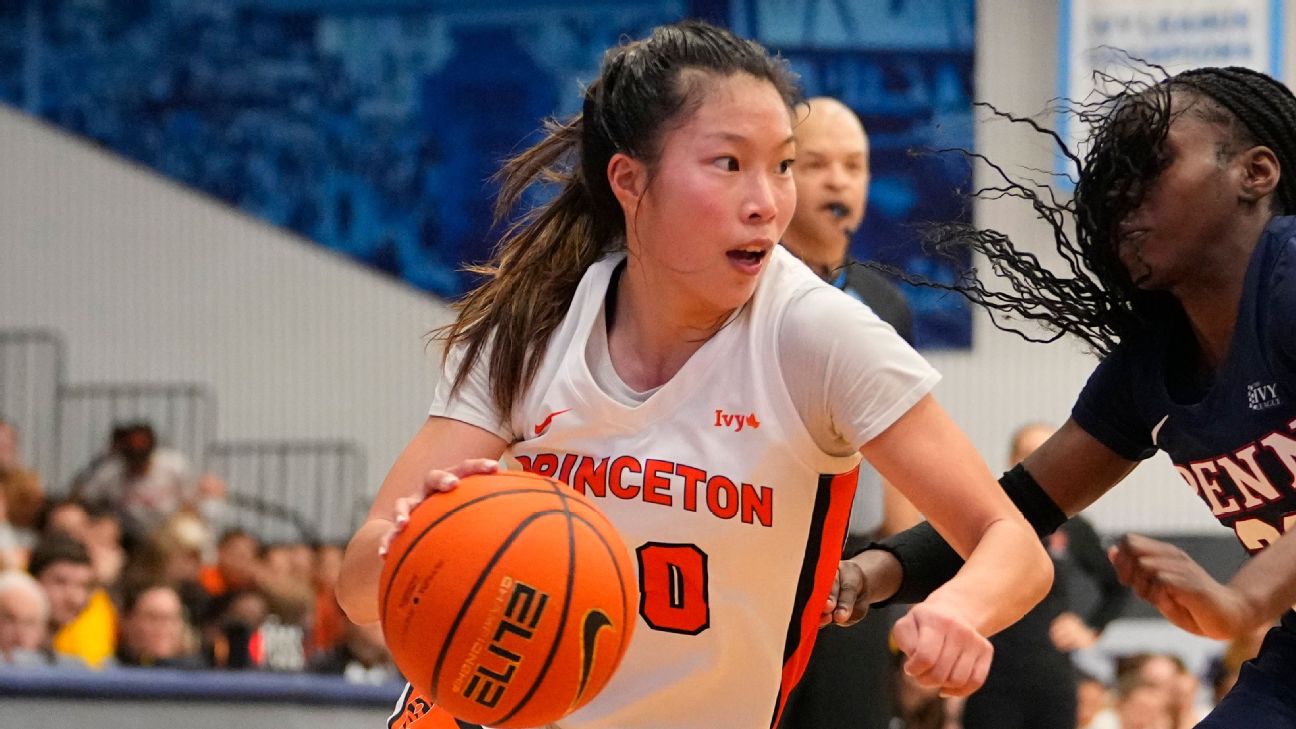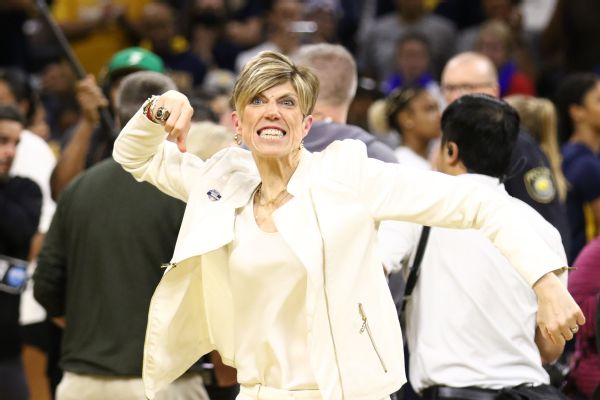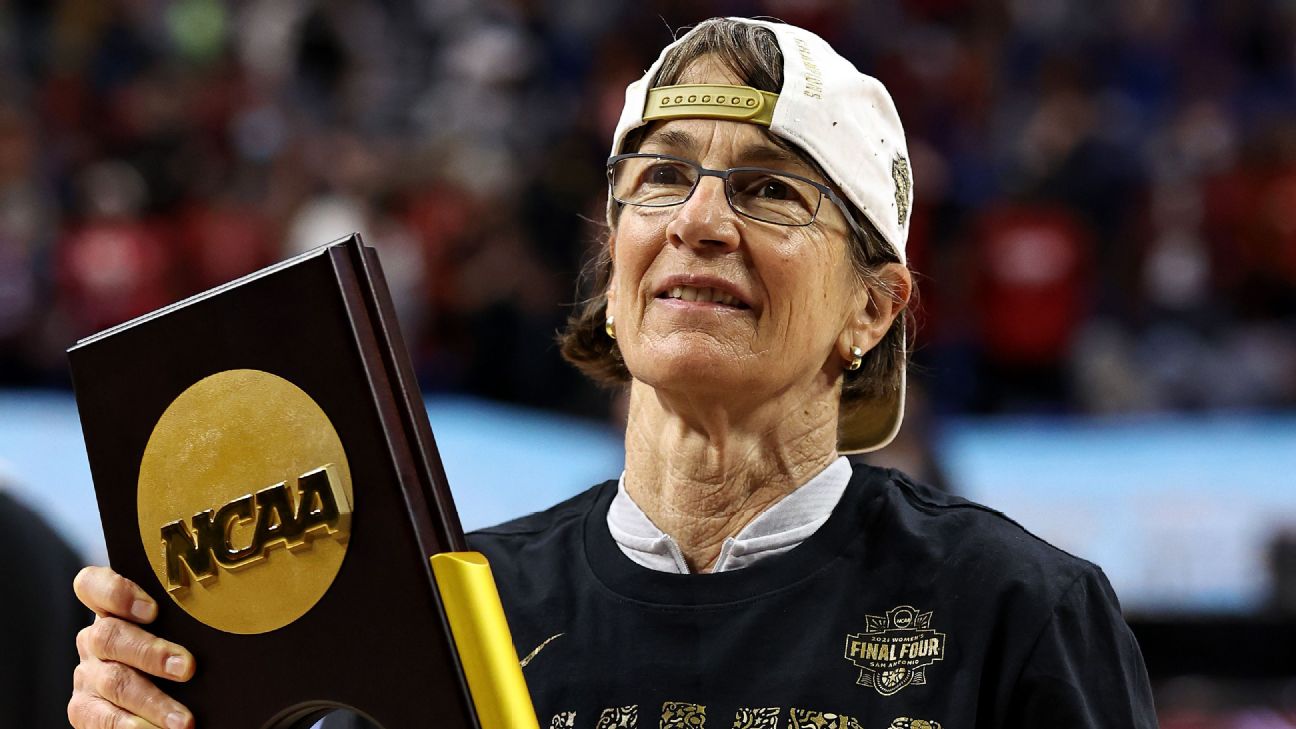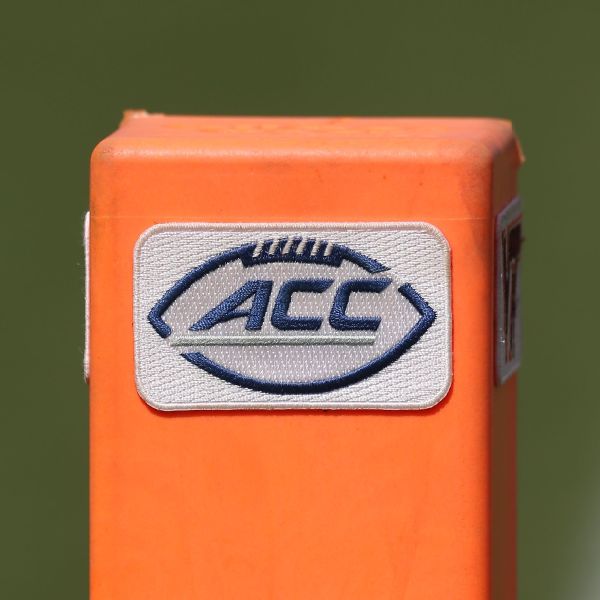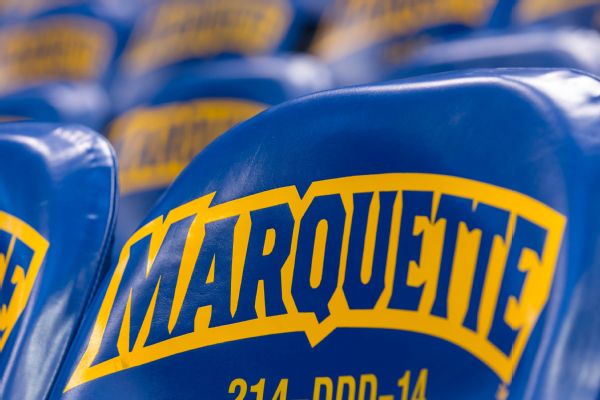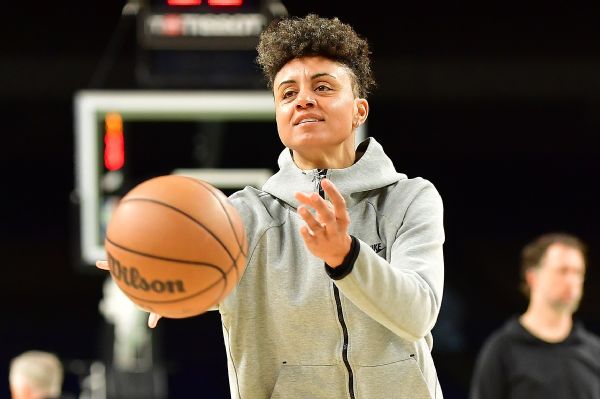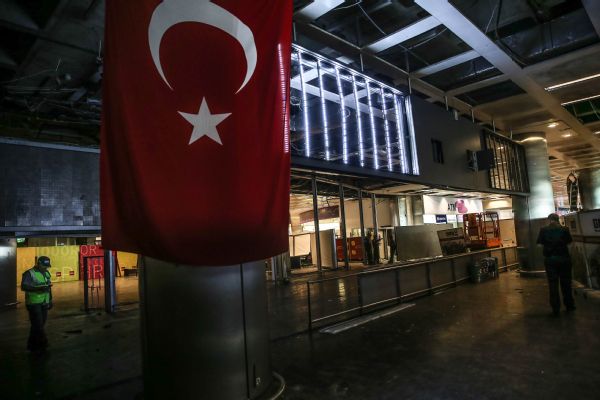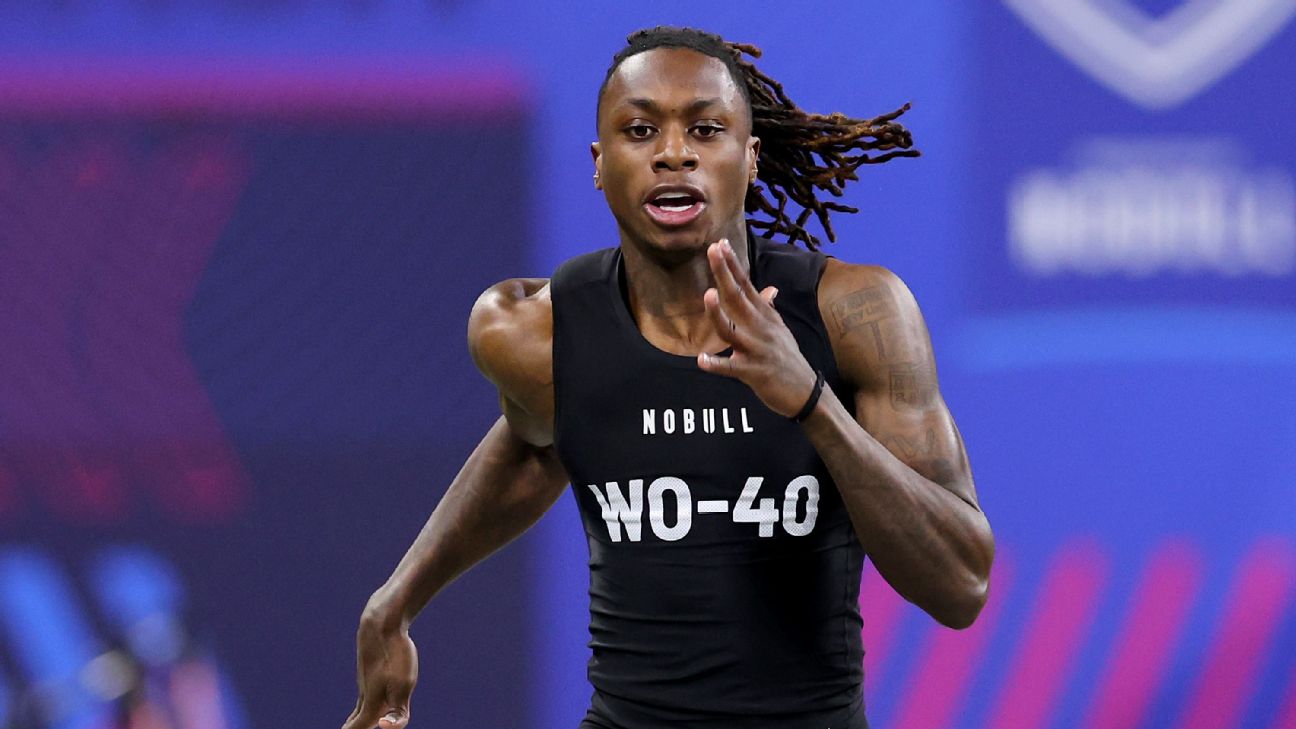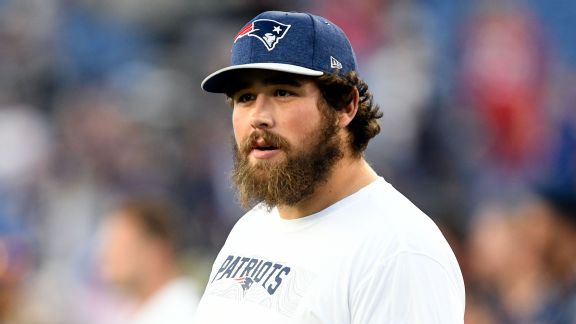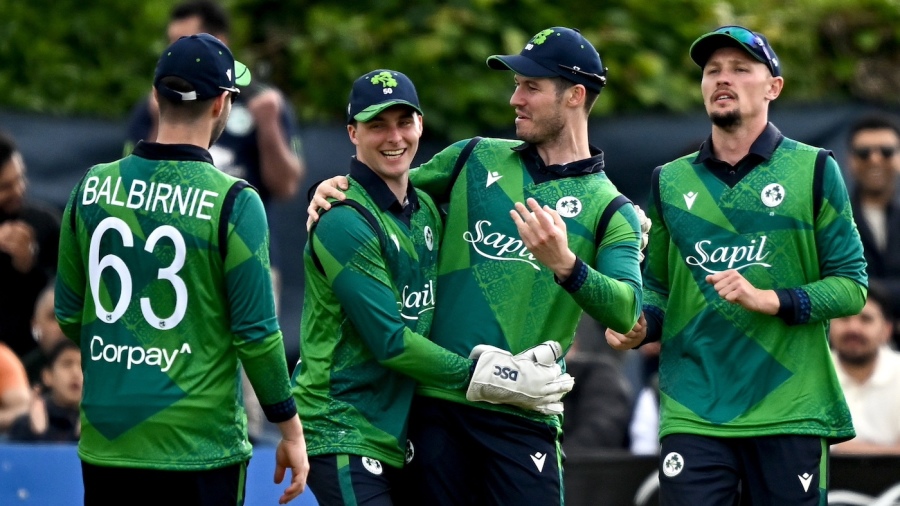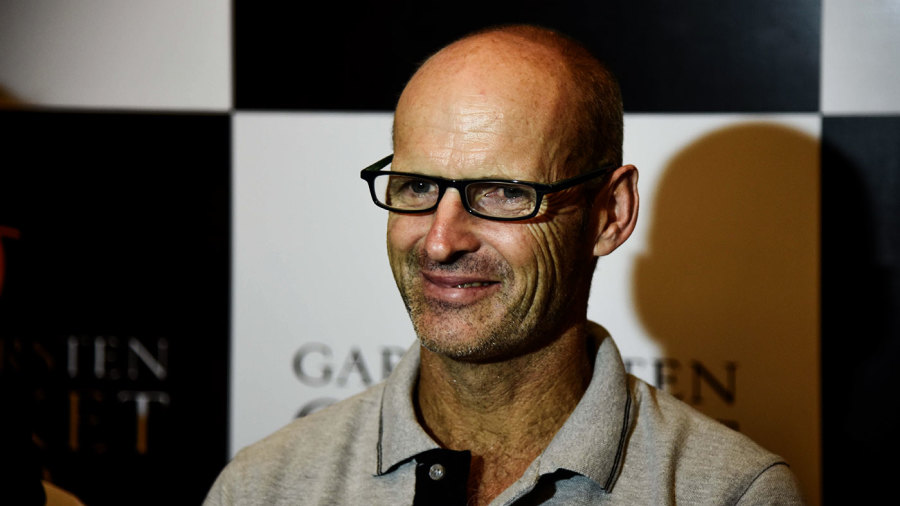![Craig_Counsell_BD [608x342]](https://a.espncdn.com/photo/2024/0430/r1326701_608x342_16-9.jpg)
Can Schauffele hold on Is Hovland back Looking ahead to Friday at the PGA Championship
When the Brewers visit Wrigley Field on Friday for their first meeting with the Cubs this season, the focus will be on the managers: Pat Murphy of Milwaukee and his one-time protégé, Craig Counsell of Chicago.
It won't be the first time they have squared off as managers, but it will be the first time they have met since Counsell left the Brewers for the Cubs during the offseason for a record five-year, $40 million contract and Murphy, his bench coach, was promoted as his replacement.
Now, the two longtime friends are opponents -- not just for one game, not just for a series but for a whole season, leading teams that don't like each other in mutual quests for the same thing: the National League Central crown.
On the scale of baseball reunions, the Counsell-Murphy pairing is historically unique. Some of that is because of their backstory -- Murphy coached Counsell at Notre Dame, they faced off a handful of times as skippers in 2015 when Murphy was the interim manager of the Padres and the next year, Counsell hired Murphy in Milwaukee. For eight full seasons, Counsell and Murphy led the clubhouse during a time when the Brewers were one of baseball's most consistent winners.
The pair were asked about their unique relationship before their first encounter in 2015, questions that are going to be asked all over again Friday.
"I was awful to him," Murphy said then about their time at Notre Dame. "I was very, very hard on him. I thought he would never speak to me again."
"He's a friend," Counsell said. "He's been an important person for me in my baseball career. He was a person who made me mentally tough, because he challenges you a lot."
Counsell wasn't just blowing smoke. Murphy's Padres won the first game 13-5, but the Brewers ended up winning five of seven meetings over the past two months.
Nearly a decade later, Counsell is off to an excellent start with the Cubs, so far offering nothing but validation of Chicago's aggressive pursuit of him last fall. What might be a little more surprising is what's happened in Milwaukee, where the Murphy-led Brewers have kept on rolling.
But the impact of this move can be felt beyond the 2024 NL Central race: When a star manager like Counsell leaves a long-time job for new pastures, what does it mean -- for the manager, his replacement, the team he joins and the team he leaves behind?
What it means for the team left behindA big factor in this new version of the Cubs-Brewers rivalry is the duration of Counsell's tenure in Milwaukee. He took the job 28 games into the 2015 season, longer than most managers get to enjoy with the same franchise.
During the modern era, there have been just 66 instances of a manager being at the helm of the same franchise for eight or more consecutive Opening Days. At the end of last season, there were five such tenures in progress -- Counsell, Terry Francona (Guardians), Dave Roberts (Dodgers), Scott Servais (Mariners) and Kevin Cash (Rays). With Counsell now in Milwaukee and Francona retired, Cash's nine seasons and counting in Tampa Bay make him baseball's longest-tenured manager. Let's label these managers -- those with eight or more consecutive Opening Days with the same franchise -- as "star" managers.
When a star manager departs, there are countless reasons for it, and most of them are not positive. Usually, the team has fallen on hard times and seeks a fresh start. Often, the manager in question will ease into retirement, at least for a while. Sometimes but less frequently, he'll leap right into another job.
On average, the teams that lose or fire a star manager tend to get a little better, going from an aggregate .492 winning percentage to .513, or an improvement of 3.4 games per 162. The uptick is modest, but validates the "new voice" approach and underscores the fact that the separation happens because of some lack of success or a trajectory heading in the wrong direction.
Within the data set, there are a lot of different stories. The longest-tenured managers in history were Connie Mack, who guided the Athletics for 50 years, and John McGraw, who led the Giants for 30 seasons. Both franchises made huge leaps in the year after those legends departed.
Other clubs fell off the proverbial cliff. The Tigers plummeted to 109 losses the year after Sparky Anderson left. The Red Sox declined by 21 games when Francona left that club (Boston's Bobby Valentine era). Most recently, the Athletics went from 86-76 in 2021 to 60-102 the next year when Bob Melvin left after 10 seasons and the franchise entered another rebuild.
By and large though -- since even longterm managers tend to leave their jobs (voluntarily or otherwise) when teams are down -- on average those teams bounce back a little when the new sheriff pulls into town.
So far in Milwaukee, that appears to be happening again, despite all of Counsell's success with the Brewers.
What it means for the manager -- and his new teamWhat about the other side of the coin: What happens to those star managers after they move on?
For most of them, there's a simple answer: Nothing.
Of the 61 departed long-tenured managers prior to the end of last season, just 18 were guiding a new team at the outset of the following campaign. Many of the others retired, like Mack and McGraw, while others returned after a break of a year or two, with Bruce Bochy being the most prominent recent example of that.
Before the dawn of the division era (1969), there were only four examples of a star manager jumping right back into the fray with a new club: Frank Selee (Cubs, 1902), Jimmy McAleer (Senators, 1910), Bill McKechnie (Reds, 1938) and Bucky Harris (Phillies, 1943).
Increasingly though, star managers have become hot commodities whose names dominate the managerial rumor mill. When teams hire them, it tends to generate a lot of excitement. This is a particularly familiar story on the north side of Chicago, where Counsell becomes the third star manager this century to be hired by the Cubs, following Dusty Baker (hired in 2003 after 10 seasons with the Giants) and Joe Maddon (hired in 2015 after nine seasons with the Rays).
The list doesn't include Lou Piniella, who was certainly a star manager when he was hired by the Cubs in 2007. However, Piniella doesn't quite fit our criteria here because his long tenure in Seattle (10 seasons) was followed by three years with the Rays and a year off before he went to Chicago.
Why have teams increasingly sought big-name managers? Because it usually works to hire them.
Of the 18 long-tenured managers who went right into another job, 14 guided their new teams to a higher win total the next season. And the scale of improvement is fairly staggering: The average is 14.9 more wins, with nine of the 14 improvements by double digits.
The only clubs who didn't show gains with their star managers:
1969 Expos: They couldn't improve despite hiring Gene Mauch because they were an expansion team -- though winning any games at all in that context might be viewed as an improvement.
2000 Orioles: They fell off by four games after Mike Hargrove replaced Ray Miller after he'd led Cleveland for eight-plus seasons.
2007 Giants: After 12 seasons with the Padres, Bochy took over an ancient Giants team at the end of Barry Bonds' career, and San Francisco declined by five games in Bochy's first season. Things eventually worked out for Bochy and the Giants, however.
2012 Marlins: It seemed like a good idea to hire Ozzie Guillen after his eight mostly successful seasons leading the White Sox. It turned out it was not.
The Cubs' list of biggest improvements from star managers is highly encouraging. Confined to the division era, there are only two names on it: Baker (21-game improvement in 2003) and Maddon (24-game improvement in 2015).
What it means for the Brewers and CubsIf the history of this kind of managerial shift is a guide, the Brewers and Cubs should both make out all right, though the scale of improvement heavily favors the team getting the star manager as opposed to the team that lost him.
But over the first few weeks of the 2024 season, it is far from settled whether or not the pattern is going to hold up for Counsell and Murphy.
Let's start this point with a managerial leaderboard and laggardboard, using the EARL metric. EARL (the name is an homage to Earl Weaver) is a kind of hodgepodge of managerial-adjacent measures that together do a fairly good job of anticipating the thinking of those who will eventually be filling out manager of the year ballots. It looks at factors like winning above or below run differential expectation, over- or under-achieving preseason win expectation and success in one-run games. Here's the list through Monday night's games:
Note the language of the EARL description: The system isn't so much measuring the performance of a manager -- which may be impossible to do -- as it is serving as a barometer of the kinds of things that influence awards voting. Counsell, whose Brewers annually beat over/under consensus and had uncommonly good records in close games, almost always places high on the EARL leaderboard. In the very early juncture of the 2024 season, Murphy has out-EARLed him.
The Cubs and Brewers have both won at a higher rate than would be anticipated by run differential, even after last weekend's unwieldy results for both teams. (The Brewers were drubbed twice by the Yankees, while the Cubs absorbed a 17-0 beating at the hand of the Red Sox.) The degree of over-performance of both teams is close.
But Murphy is off to a 7-2 start in one-run games, while Counsell's Cubs are just 4-5. Meanwhile, the teams are in a virtual dead heat in the standings, though the Cubs (87.5 over-under, per ESPN BET) carry higher expectations than the Brewers (84.5). Combine these factors, and Murphy and Counsell have been baseball's top skippers so far in 2024.
These numbers can flip quickly this early in the season, but if these patterns hold, by the time September rolls around we could see Counsell and Murphy as the leading contenders for NL Manager of the Year.
We're a long way from all of this becoming a reality, but it'll continue to unfold this weekend in a reunion unlike anything we've seen in baseball.


